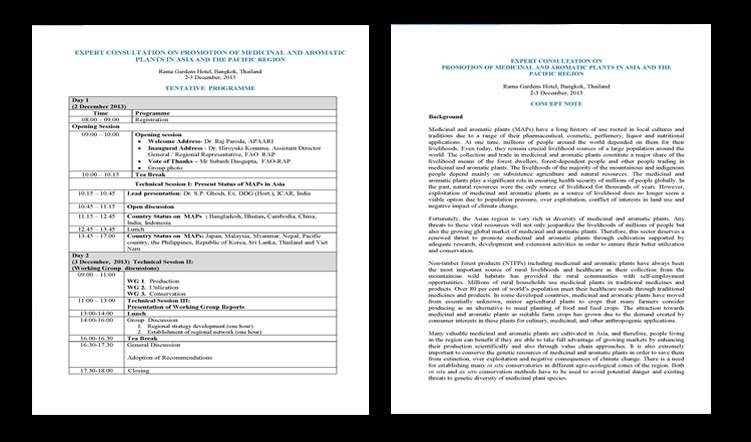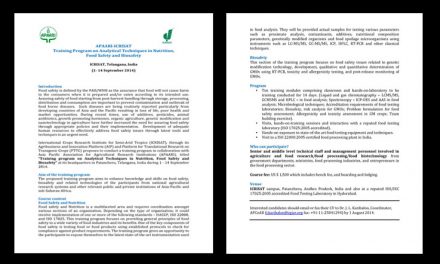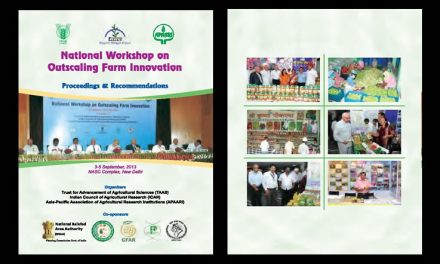Medicinal and aromatic plants (MAPs) have a long history of use rooted in local cultures and traditions due to a range of their pharmaceutical, cosmetic, perfumery, liquor and nutritional applications. At one time, millions of people around the world depended on them for their livelihoods. Even today, they remain crucial livelihood sources of a large population around the world.
Many valuable medicinal and aromatic plants are cultivated in Asia, and therefore, people living in the region can benefit if they are able to take full advantage of growing markets by enhancing their production scientifically and also through value chain approaches. It is also extremely important to conserve the genetic resources of medicinal and aromatic plants in order to save them from extinction, over exploitation and negative consequences of climate change. There is a need for establishing many in situ conservatories in different agro-ecological zones of the region. Both in situ and ex situ conservation methods have to be used to avoid potential danger and existing threats to genetic diversity of medicinal plant species.
The significance of medicinal and aromatic plants has risen in recent years due to increasing requirements on quality, safety, and efficiency of medicinal and aromatic plants products.
In view of these facts, FAO and the Asia-Pacific Association of Agricultural Research Institutions (APAARI) are jointly organizing a Regional Expert Consultation on “Promotion of Medicinal and Aromatic Plants in Asia and the Pacific region.
Objectives
- To assess the current status of production, utilization and conservation of medicinal and aromatic plants in Asia and the Pacific region and identify future needs of conservation and opportunities for their development.
- To exchange information and share knowledge and technologies available in different countries in the region and learn from each other’s’ experience
- To create awareness on the value of medicinal and aromatic plants among producers in order to promote cultivation with a special focus to small scale farmers.
- To identify relevant policy options for strengthening the conservation and sustainable development of these resources
- To strengthen regional collaboration and networking and develop a regional strategy for, promotion and sustainable use of medicinal and aromatic plants
Expected outputs
- Country status on medicinal and aromatic plants assessed and future needs of conservation and opportunities for development identified
- Knowledge shared and experiences learnt on the use of improved technologies and tools for production and utilization of medicinal and aromatic plants.
- Awareness on the importance of medicinal and aromatic plants for enhancing cultivation and small holder farmers’ livelihoods promoted
- Policy option for conservation and sustainable production and utilization of medicinal and aromatic plants in different agro-ecological zones/countries identified
- A regional strategy to promote medicinal and aromatic plants in Asia and the Pacific region developed
- A regional network on medicinal and aromatic plants established
Participants
A total of 40-45 participants are expected to attend the Expert Consultantation.
Venue and Time
The Expert Consultation will be held at Rama Gardens Hotel, Bangkok, Thailand on 2-3 December, 2013.
Download
Medicinal and Aromatic Plants in Asia Concept Note (2415 downloads)
Medicinal and Aromatic Plants in Asia Program (1908 downloads)




